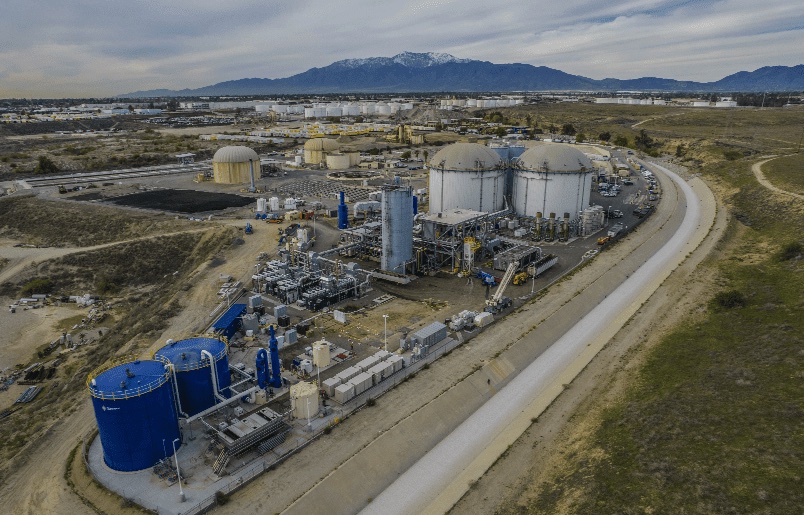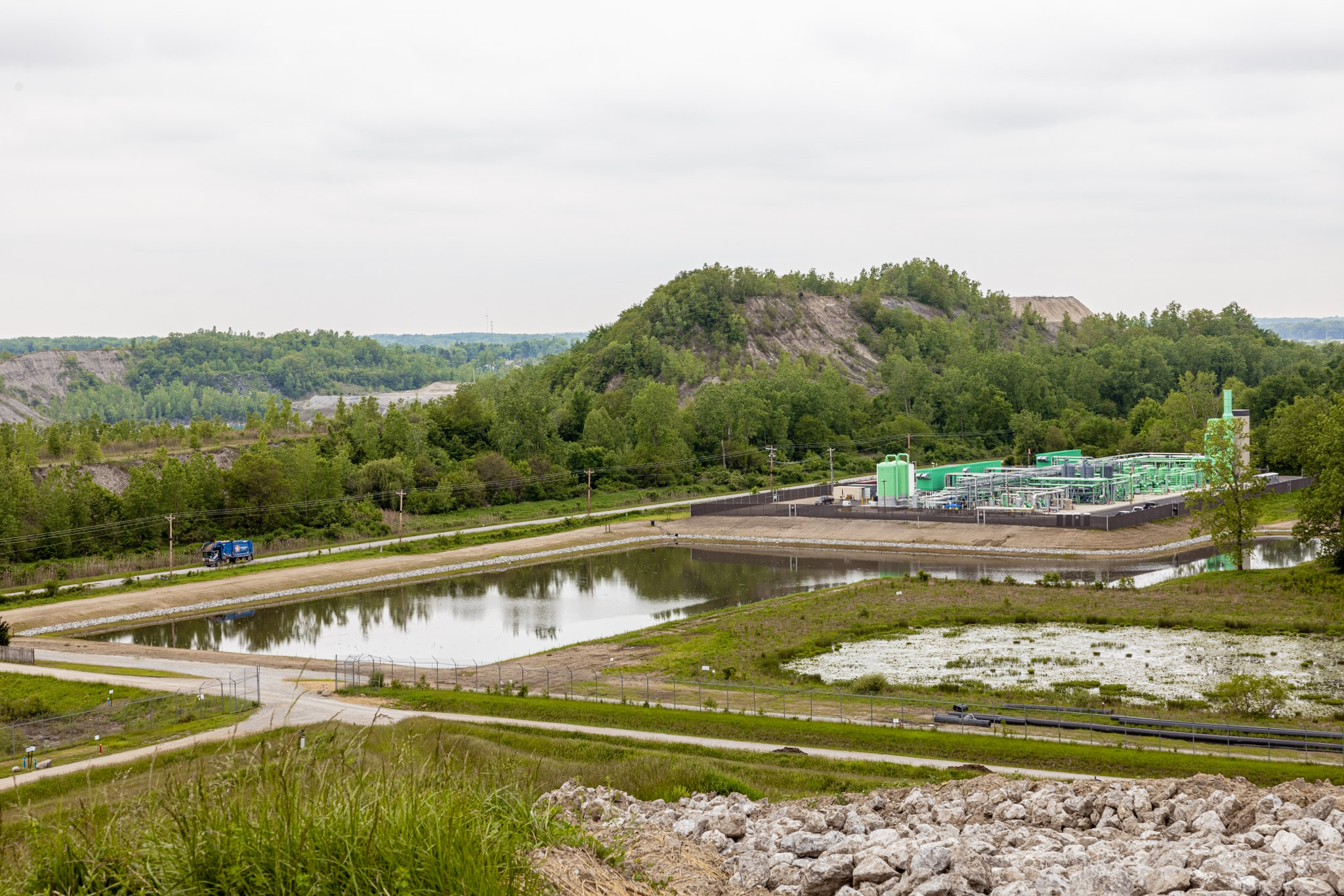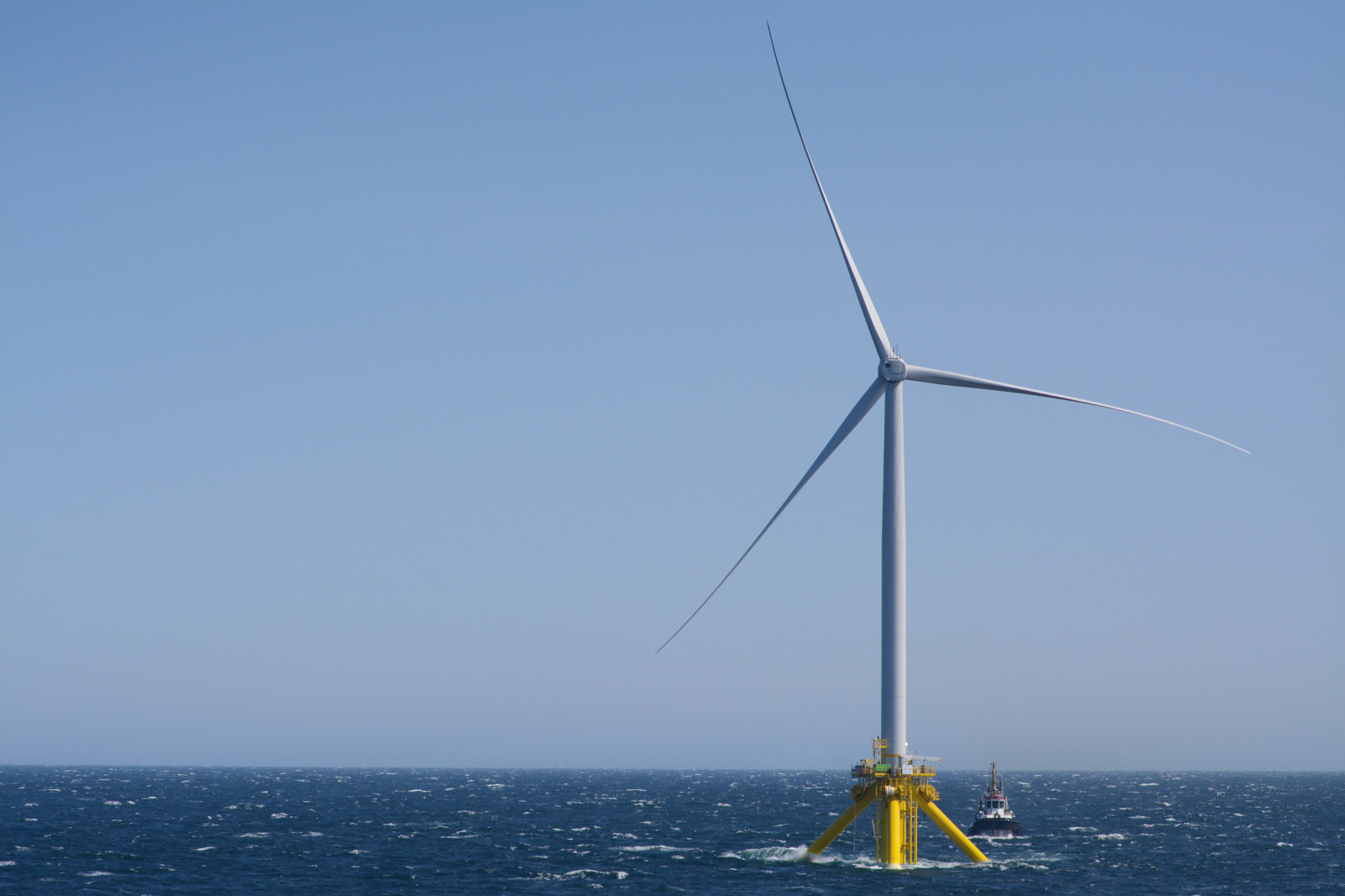Google has tapped Berkshire Hathaway’s NV Energy to source geothermal energy to power its data centers in Nevada, the tech giant said this week.
The deal, pending regulatory approval, is based on Google’s new clean transition rate structure called the Clean Transition Tariff (CTT). Aiming to accelerate the adoption of clean technologies and help companies meet emissions goals, the tariff matches clean energy generation and customer load. It specifically targets more investment in clean firm power such as geothermal, long-duration energy storage and advanced nuclear energy.
“This allows customers to meet their growing electricity demand with 24/7 CFE [carbon-free energy] through their existing utility relationship and share in the long-term benefits that these projects provide, like increasing the share of clean and reliable power,” Google said.
RELATED
Google Exec: More Collaboration Needed for Clean Power
As part of the first-of-its-kind energy supply agreement, Google, through NV Energy, procured 115 megawatts (MW) of geothermal power from Fervo Energy. The move builds on Google’s pilot geothermal project with Fervo to power the tech company’s Cloud region in Nevada. The pilot’s delivery of carbon-free electricity in 2023 marked a first for Fervo’s enhanced geothermal system. The geothermal company uses proven oil and gas drilling techniques such as hydraulic fracturing and horizontal drilling to capture heat from hot rock to create electricity.
“Now, through our energy supply agreement with NV Energy, we’re expanding by almost 25x the amount of enhanced geothermal capacity enabled by Google, bringing more round-the-clock clean power onto the local grid that serves our data center operations in Nevada,” Google said.
According to Google, the CTT structure can be replicated in other U.S. electricity markets. Google and NV Energy proposed a framework that can be customized for various state regulatory environments to address state and customer goals.
“This innovative proposal will not be paid for by NV Energy’s other customers but will help ensure all our customers benefit from cleaner, greener energy resources,” said NV Energy CEO Doug Cannon. “If approved, it provides a blueprint for other utilities and large customers in Nevada to accelerate clean energy goals. We look forward to progressing this proposal through the regulatory process to approval and look forward to sharing this with other customers to advance the additional economic opportunities it can bring to our state.”
Duke Energy in May announced a similar agreement with Google, Microsoft, Amazon and Nucor to meet growing power needs in North Carolina and South Carolina.
Here’s a look at other renewable energy news this week.
Hybrid
Ørsted Brings Its Largest Onshore Renewable Project Online
Ørsted’s Helena Energy Center, a 518 MW combined wind and solar project in South Texas, has come online, the company said June 13.
The center is the largest onshore renewable energy project and the first co-located wind and solar project in the company’s portfolio. Located in Bee County, the center is comprised of the 268-MW Helena Wind farm and the 250-MW Sparta Solar farm.
“Taking advantage of the Gulf of Mexico’s strong coastal winds and abundant sunshine, this project will offer reliable energy to Texas’ grid and economic opportunity for the local community,” said David Hardy, executive vice president and CEO of Ørsted’s Americas region. “In reaching full operations, Helena Energy Center brings Ørsted’s global operating onshore portfolio to 4.8 GW [gigawatts]. We look forward to building on that momentum as more onshore projects come online in the U.S. this year.”
The center will produce enough electricity to power more than 110,000 homes and businesses in Texas annually, according to Ørsted. Both the wind and solar farms have secured contracts with corporate offtakers.
Hydrogen
TES, Kawasaki Kisen Kaisha Form e-NG Partnership
Tree Energy Solutions (TES) has partnered with Japanese logistics company Kawasaki Kisen Kaisha to explore collaboration opportunities for cleaner fuels for maritime shipping, according to a June 12 news release.
The partnership forms as TES looks to develop gigascale projects. The company produces electric natural gas (e-NG), which is formed by combining electrolytic hydrogen with biogenic or recycled CO2. Such discussions aim to secure and procure e-NG the meet the needs of Kawasaki Kisen Kaisha or its subsidiaries’ bunkering needs in Europe, the release said. The e-NG would come from TES’ hub in Wilhelmshaven, Germany.
RNG
RNG Operator Sevana Bioenergy Acquires Rialto Bioenergy

Sevana Bioenegy, an Idaho-based renewable natural gas developer, has acquired the Rialto Bioenergy Facility located in Rialto, California.
Rialto, a subsidiary of Anaergia, is an organic waste-to-energy facility designed to convert organic waste streams into 1 MMBtu per year of carbon negative RNG and soil products, according to a news release. It has a permitted capacity of 1,000 tons per day of food waste separated from municipal solid wastes and municipal biosolids.
The acquisition came after Rialto initiated voluntary Chapter 11 restructuring proceedings in the U.S. Bankruptcy Court for the Southern District of California in 2023.
“The Rialto Bioenergy Facility is a strategic asset that aligns perfectly with Sevana Bioenergy’s mission to accelerate the production of RNG,” said John McKinney, CEO of Sevana Bioenergy. “This acquisition strengthens our presence on the West Coast and allows us to continue playing a vital role in helping California achieve its ambitious renewable energy and waste diversion goals.”
BP’s Archaea Energy, Republic Services Startup Indiana RNG Facility

BP-owned Archaea Energy and waste disposer Republic Services brought the first of more than 40 landfill renewable natural gas plants online as part of their Lightning Renewables joint venture (JV).
The two companies marked the startup of the Archaea Modular Design (AMD) plant at Republic’s National Serv-All Landfill in Fort Wayne, Indiana, according to news released June 13.
Such projects involve turning methane emitted from decomposing waste at landfills into pipeline-quality gas. The RNG is used similar to fossil gas but with a lower carbon intensity. The fuel source is already playing a role in lowering emissions in the U.S. as the number of RNG projects grows.
Instead of taking the custom build route for RNG plants, BP Archaea utilizes a modular design. Its RNG facilities are built on skids with interchangeable components. The design allows for faster builds than previous industry standards, the company said.
The Fort Wayne RNG facility is designed to process 6,400 cf of landfill gas per minute (scfm) into RNG, according to the release. Based on the U.S. Environmental Protection Agency’s Landfill Gas Energy Benefits Calculator, that’s enough gas to heat more than 25,000 homes annually.
The JV’s planned buildout of RNG plants is expected to be the largest of its kind for landfill RNG in the U.S. It is also expected to lift Republic’s landfill gas-to-energy portfolio to more than 100.
Archaea and Republic Services plan to bring another RNG plant online in Indiana later this year. The 2,000-scfm AMD RNG plant will be located at Republic Services’ Sycamore Ridge Landfill in Pimento, south of Terre Haute, Indiana.
RELATED
BP-owned Archaea Energy CEO Starlee Sykes Talks RNG
Solar
Canadian Solar, D.R. Horton Enter Pact for Solar Panels, Batteries
Canadian Solar has partnered with U.S. homebuilder D.R. Horton to provide solar photovoltaic panels and residential batteries to California communities, the solar company said June 13.
The solar panels and batteries will provide D.R. Horton communities with a reliable power source during peak electricity rate hours and power outages, Canadian Solar said. The home energy battery back-up solution includes Canadian Solar’s EP Cube residential battery energy storage system.
“We are thrilled to collaborate with D.R. Horton to help homeowners significantly reduce energy expenses amidst soaring electricity costs in California,” said Thomas Koerner, senior vice president of Canadian Solar. “Our solar panels, paired with the EP Cube, not only enable homeowners to save on electricity bills, but also provide a reliable power source during rolling blackouts, ensuring their homes remain functional and comfortable.”
RELATED
Swift Solar, with Backing from Italy’s Eni, Raises Tech Financing
Wind
RWE Prepares for Survey Work for Floating Wind Off California

RWE is gearing up to carry out site investigation survey work at its floating wind project offshore northern California, with activities beginning as soon as June 2024.
The Germany-based company on June 12 said it selected subsea services provider Argeo to conduct the surveys in 2024 and 2025 for the Canopy Offshore Wind Farm. Looking for the best spots to install wind turbines, the service company will gather data about the federal lease area as well as the area between the lease and shore in federal waters, RWE said. RWE secured development rights for the area off Humboldt County during a 2022 federal offshore lease auction.
“Due to the water depths in the lease area off the Pacific Coast of the U.S., Argeo will utilize an autonomous underwater vehicle (AUV) to conduct the surveys,” said Dave Gentle, vice president for North and South America at Argeo. “The use of an AUV as the survey platform during this initial site characterization effort will enable high-quality data collection close to the seafloor, including photographs of biological communities.”
RWE has plans for a 1.6-GW wind farm, providing enough electricity to power 640,000 homes. It would be the company’s first commercial-scale floating offshore wind farm.
“Surveying is an important step on the path toward developing Canopy Offshore Wind and helping provide clean energy that meets California’s ambitious climate goals,” said Sam Eaton, CEO of RWE Offshore Wind Holdings. “RWE is committed to responsible, inclusive development by engaging Humboldt residents, Tribal Nations and working closely with the fishing community as we begin offshore activities on the project.”
RWE also selected Geo SubSea and Coastal 35 Consulting to provide protected species observers (PSO) on survey vessels and Smultea Sciences to deliver PSO training to Tribal citizens and the Humboldt County community.
Ørsted to Install Tesla Battery for UK Offshore Wind Farm
Renewable energy group Ørsted will install a Tesla Megapack battery storage system linked to Britain’s Hornsea 3 offshore wind farm, the Danish company said on June 12.
Energy storage is becoming increasingly important as production of renewable energy rises, because the wind might not blow or the sun shine during the peak hours when most consumers turns on their lights and appliances.
“The battery will help ensure that renewable energy is used in the best possible way by storing it when demand is lower and then releasing it back into the system when it’s really needed,” Ørsted’s U.K. and Ireland Chief Duncan Clark said in a statement.
This would help reduce price volatility for consumers by making more power available, including during peak periods when energy is traditionally more expensive, Ørsted said.
The system, set to be operational by 2026, will be co-located with the onshore converter station at Swardeston in eastern England, and will have a capacity of 600 MWh, equivalent to the daily energy usage of 80,000 U.K. homes.
Ørsted did not disclose the size of the battery investment.
Hart Energy Staff and Reuters contributed to this report.
Recommended Reading
E&P Highlights: March 3, 2025
2025-03-03 - Here’s a roundup of the latest E&P headlines, from planned Kolibri wells in Oklahoma to a discovery in the Barents Sea.
Then and Now: 4D Seismic Surveys Cut Costs, Increase Production
2025-03-16 - 4D seismic surveys allow operators to monitor changes in reservoirs over extended periods for more informed well placement decisions. Companies including SLB and MicroSeismic Inc. are already seeing the benefits of the tech.
Woodside Awards SLB Drilling Contract for Project Offshore Mexico
2025-03-31 - SLB will deliver 18 ultra-deepwater wells for Woodside Energy’s Trion ultra-deepwater project starting in early 2026.
Halliburton Secures Drilling Contract from Petrobras Offshore Brazil
2025-01-30 - Halliburton Co. said the contract expands its drilling services footprint in the presalt and post-salt areas for both development and exploration wells.
PrePad Tosses Spreadsheets for Drilling Completions Simulation Models
2025-02-18 - Startup PrePad’s discrete-event simulation model condenses the dozens of variables in a drilling operation to optimize the economics of drilling and completions. Big names such as Devon Energy, Chevron Technology Ventures and Coterra Energy have taken notice.
Comments
Add new comment
This conversation is moderated according to Hart Energy community rules. Please read the rules before joining the discussion. If you’re experiencing any technical problems, please contact our customer care team.






